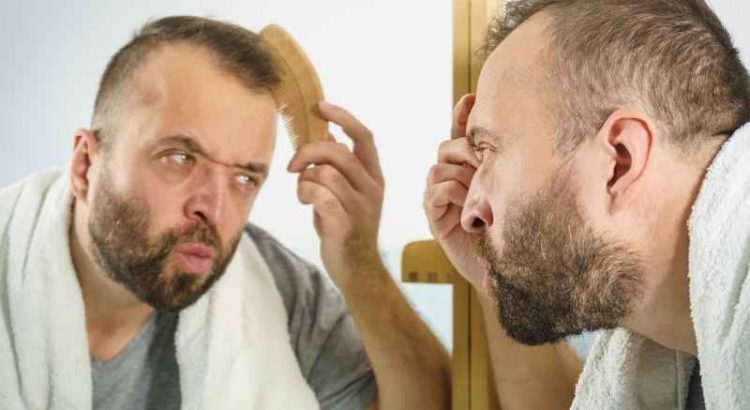Contents;
The Causes Of Hair Loss
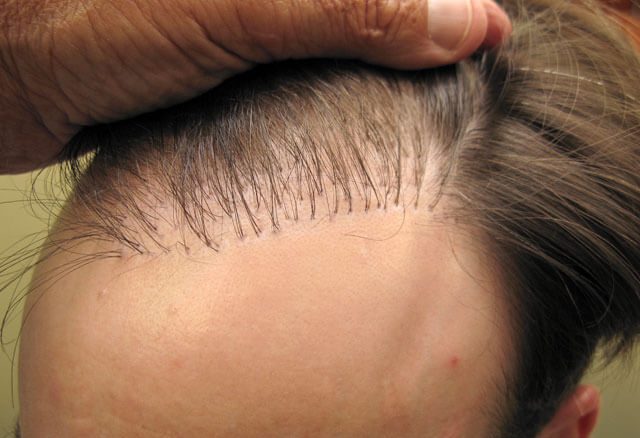
Hair loss can be a distressing experience for both men and women. It not only affects our physical appearance but also takes a toll on our self-confidence. Understanding the causes of hair loss is the first step towards finding effective solutions. Medicines play a crucial role in treating hair loss, but before delving into that, let’s explore the various factors that contribute to this common condition.
1. Genetics: One of the primary causes of hair loss is genetics. Hereditary factors can make certain individuals more prone to experiencing thinning hair or baldness. This type of hair loss, known as male or female pattern baldness, occurs gradually over time.
2. Hormonal Changes: Hormonal imbalances can also lead to hair loss. For example, in men, an excess of dihydrotestosterone (DHT) can shrink hair follicles and cause hair to become thinner. In women, hormonal changes during pregnancy or menopause can trigger temporary hair shedding.
3. Medical Conditions: Certain medical conditions can contribute to hair loss. Conditions such as thyroid disorders, alopecia areata, and scalp infections can disrupt the normal cycle of hair growth and lead to excessive hair shedding.
4. Stress and Lifestyle: Chronic stress, a poor diet, and unhealthy lifestyle choices can weaken hair follicles and contribute to hair loss. Lack of proper nutrition, smoking, and excessive use of styling tools or harsh hair products can all take a toll on the health of our hair.
Understanding the underlying causes of hair loss helps us make informed decisions about our treatment options. While there are various medicines available in the market for treating hair loss, it is important to consult with a healthcare professional or dermatologist before starting any medication. They can evaluate your specific condition and recommend the most suitable treatment plan tailored to your needs. Remember, each individual’s hair loss journey is unique, and what works for one person may not work for another.
The Role Of Medicines In Treating Hair Loss
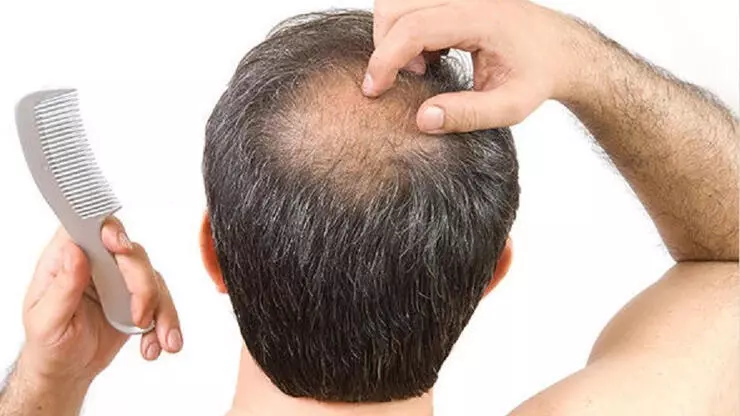
When it comes to treating hair loss, medicines play a vital role in restoring hair growth and improving the overall condition of the hair. Hair loss can be a distressing experience for both men and women, affecting their self-confidence and quality of life. However, with the advancements in medical science, there are several effective medicines available today that can help combat hair loss and promote hair regrowth.
One of the main reasons why medicines are crucial in the treatment of hair loss is because they tackle the underlying causes of the condition. Whether it is due to hormonal imbalances, hereditary factors, or other medical conditions, the right medication can address these issues and stimulate hair follicles to grow new hair. Medicines such as minoxidil and finasteride have been extensively studied and proven to be effective in promoting hair regrowth.
Another significant role that medicines play in treating hair loss is their ability to slow down or stop the progression of hair thinning. By using prescribed medications, individuals experiencing hair loss can prevent further hair fall and maintain the existing hair. This can be crucial in preserving the overall volume and density of the hair, providing patients with a fuller and healthier appearance.
| Top Hair Loss Medicines |
|---|
| 1. Minoxidil: Minoxidil is a widely used topical medication that has been proven to stimulate hair regrowth. It is available over the counter and comes in various strengths. Regular application of minoxidil can help improve blood circulation to the hair follicles, leading to increased hair growth. |
| 2. Finasteride: Finasteride is an oral medication that works by blocking the conversion of testosterone to dihydrotestosterone (DHT), a hormone responsible for hair loss. By reducing DHT levels in the scalp, finasteride can help slow down the progression of hair loss and promote hair regrowth. |
| 3. Dutasteride: Dutasteride is another oral medication that works similarly to finasteride. It inhibits the production of DHT, helping to maintain the existing hair and stimulate the growth of new hair. |
It is important to note that while medicines can be effective in treating hair loss, they may also come with potential side effects. Common side effects of certain hair loss medications include scalp irritation, dryness, and itching. It is essential to consult with a healthcare professional before starting any medication to ensure it is appropriate for your specific condition and to understand the potential risks.
In conclusion, medicines play a crucial role in treating hair loss by addressing the underlying causes and promoting hair regrowth. With the right medications and proper guidance from healthcare professionals, individuals experiencing hair loss can take control of their condition and restore their confidence. Remember, it is always best to seek professional advice to determine the most suitable hair loss medicine for your specific needs, as everyone’s situation is unique.
Top 5 Effective Medicines for Hair Loss?
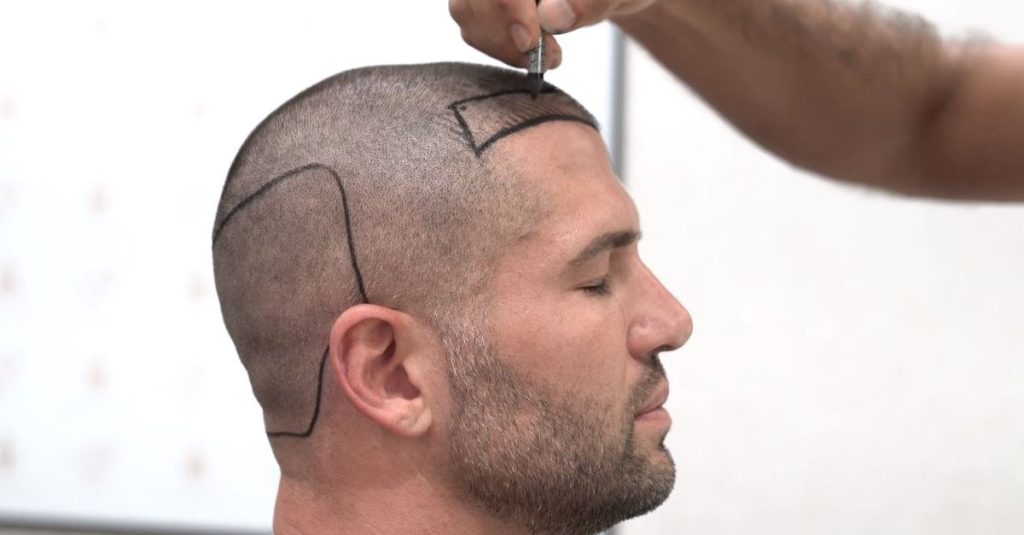
Are you struggling with hair loss and searching for effective solutions? Look no further. We will discuss the top 5 medicines for hair loss that have shown promising results for many individuals. Hair loss can be a challenging condition to deal with, affecting one’s self-esteem and confidence. Fortunately, with advancements in medical science, there are medications available that can help promote hair growth and combat hair loss.
When it comes to choosing the right medicine for hair loss, it’s essential to consult with a healthcare professional or a dermatologist. They can evaluate your specific condition and recommend the most suitable treatment option. However, it’s worth noting that certain medications have gained recognition for their effectiveness in combating hair loss.
| Medicine | Description | Potential Benefits |
|---|---|---|
| 1. Minoxidil | Minoxidil, available as a topical solution or foam, is commonly used to treat hair loss. It works by increasing blood flow to the hair follicles, promoting hair growth and preventing further loss. | – Stimulates hair growth- Slows down hair loss- Suitable for both men and women |
| 2. Finasteride | Finasteride is an oral medication primarily used to treat male pattern baldness. It works by blocking the production of a hormone called DHT, which contributes to hair loss. | – Halts hair loss- Stimulates hair regrowth- Most effective for males |
| 3. Dutasteride | Dutasteride is another oral medication that inhibits the production of DHT. It is sometimes prescribed for treating hair loss, particularly in cases where other medications have not been effective. | – Reduces DHT levels- May promote hair regrowth- More potent than Finasteride |
| 4. Ketoconazole | Ketoconazole is an antifungal medication that can also help combat hair loss. It is available in shampoo form and works by reducing inflammation and scaling on the scalp, promoting a healthier environment for hair growth. | – Reduces scalp inflammation- Improves hair thickness- Can be used in combination with other medications |
| 5. Biotin | Biotin, also known as vitamin B7, is not a medication, but a supplement that can aid in hair growth. It helps strengthen the hair follicles and improves the overall health and quality of the hair. | – Promotes hair growth- Strengthens hair strands- Enhances hair thickness |
Note: It is crucial to consult with a healthcare professional before starting any medication or supplement for hair loss. They can provide personalized guidance and determine the most suitable treatment option based on your specific needs.
In conclusion, the top 5 effective medicines for hair loss mentioned above have shown promising results in promoting hair growth and reducing hair loss. While these medications can be beneficial, it is important to remember that individual responses may vary. Patience and consistency are key when using any treatment for hair loss. Remember, if you’re struggling with hair loss, you’re not alone, and there are options available to help you regain your confidence and restore your hair.
Comparing The Effectiveness Of Top Hair Loss Medicines

When it comes to dealing with hair loss, there are numerous options available in the form of medicines. These medicines aim to address the underlying causes of hair loss and stimulate hair growth. However, not all hair loss medicines are created equal, and their effectiveness can vary from person to person. In this blog post, we will be comparing the effectiveness of some of the top hair loss medicines, helping you make an informed decision.
One of the most commonly used hair loss medicines is minoxidil. It works by stimulating hair growth and prolonging the growth phase of the hair follicles. Minoxidil is available in both topical solution and foam form and is known to be effective in both men and women. However, it’s important to note that results may vary, and it may take several months to see a noticeable difference.
Finasteride is another popular hair loss medicine, particularly for male pattern baldness. It works by inhibiting the production of a hormone that can contribute to hair loss. Finasteride is available in tablet form and is generally well-tolerated. However, it may not be suitable for everyone, and it’s recommended to consult with a healthcare professional before starting this medication.
Another hair loss medicine that deserves mention is dutasteride. Similar to finasteride, dutasteride works by inhibiting the hormone responsible for hair loss. It is also available in tablet form and is primarily used for treating enlarged prostate glands. However, some studies have shown its effectiveness in promoting hair growth, although it may have a higher risk of side effects compared to finasteride.
- Saw palmetto is a natural hair loss medicine that is often considered as an alternative to pharmaceutical options. It is derived from the fruit of the saw palmetto plant and is believed to block certain enzymes that contribute to hair loss. While there is limited scientific evidence supporting its effectiveness, some people have reported positive results with the use of saw palmetto supplements.
| Medicine | Effectiveness | Suggested Dosage |
|---|---|---|
| Minoxidil | Varies from person to person | Apply twice daily |
| Finasteride | Effective for male pattern baldness | Take 1mg tablet daily |
| Dutasteride | Promising results, but higher risk of side effects | Take 0.5mg tablet daily |
| Saw Palmetto | Limited scientific evidence | Consult healthcare professional for the appropriate dosage |
Potential Side Effects Of Hair Loss Medications
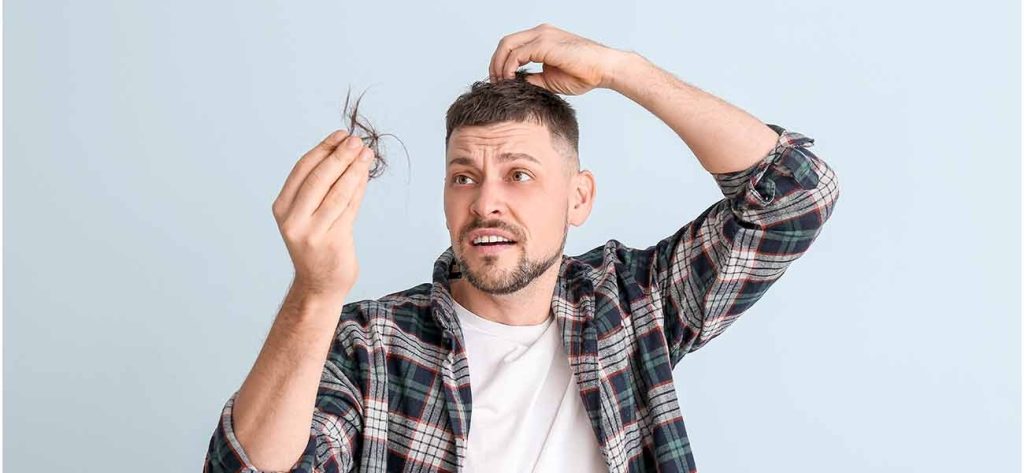
When it comes to addressing hair loss issues, medications have become a popular choice for many individuals. These medications aim to slow down or even reverse the process of hair loss, giving people the hope of regaining their luscious locks. While hair loss medications can be effective in treating hair loss, it is important to understand that they may also come with potential side effects. It is essential to be aware of these side effects before starting any hair loss medication to make an informed decision.
One of the most common side effects of hair loss medications is scalp irritation. Some medications can cause itching, redness, or even a burning sensation on the scalp. This can be both uncomfortable and frustrating for individuals who are trying to combat hair loss. If you experience any persistent scalp irritation, it is crucial to consult with a healthcare professional to discuss alternative options or potential remedies.
Another possible side effect of hair loss medications is changes in sexual function. Some medications may interfere with hormone levels, which can result in a decreased libido or difficulty achieving and maintaining an erection. It is important to note that not all individuals will experience these side effects, and they can vary from person to person. If you are concerned about the potential impact of hair loss medications on your sexual function, it is advisable to seek medical advice.
Allergic reactions are also possible side effects of hair loss medications. Some individuals may develop a rash, hives, or experience swelling after taking certain hair loss medications. If you notice any allergic reactions, it is crucial to stop using the medication immediately and consult with a healthcare professional. They will be able to assess the severity of the reaction and provide appropriate guidance and alternatives if necessary.
| Potential Side Effects of Hair Loss Medications: |
|---|
| Scalp irritation |
| Changes in sexual function |
| Allergic reactions |
It is important to remember that not everyone will experience these side effects when using hair loss medications. Many individuals have successfully used these medications without any adverse reactions. However, it is vital to be aware of the potential risks and to closely monitor your body’s response when starting any new medication. If you notice any unusual symptoms or side effects, it is always best to consult with a medical professional for guidance and support. Ultimately, the decision to use hair loss medications should be based on a comprehensive understanding of the potential benefits and risks involved.
Tips For Choosing The Right Hair Loss Medicine
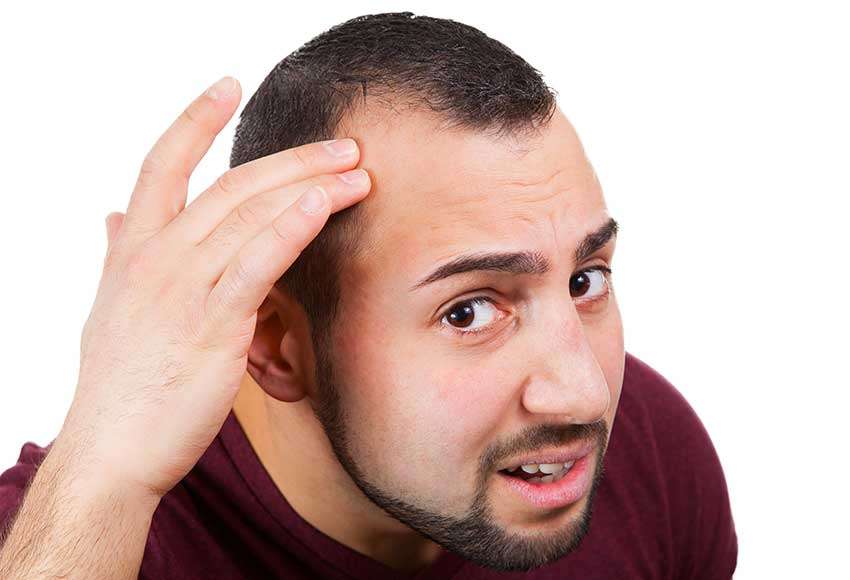
Choosing the right hair loss medicine can be a daunting task for many individuals. With a plethora of options available in the market, it is crucial to make an informed decision and find a treatment that suits your specific needs. Here are some valuable tips to help you navigate through the sea of hair loss medications and choose the one that is most likely to yield positive results for you.
1. Consult a healthcare professional: Before embarking on any hair loss treatment, it is essential to consult a healthcare professional. They can evaluate your specific condition, determine the underlying causes of your hair loss, and recommend the most appropriate medicines accordingly. Remember, what works for one person may not work for another, so expert advice is invaluable in this regard.
2. Research different options: Take the time to research and educate yourself about different hair loss medicines available in the market. Read up on their ingredients, mechanisms of action, and success rates. Look for reviews and testimonials from other individuals who have used these medications. This information will give you a better understanding of what to expect and help you make an informed decision.
3. Consider the potential side effects: Like any medication, hair loss medicines may have potential side effects. It is important to be aware of these potential risks before starting any treatment. Some common side effects include scalp irritation, dryness, and changes in hair texture. Discuss the possible side effects with your healthcare professional and weigh them against the potential benefits.
- 4. Evaluate your budget: Hair loss medications can range in price, so it is crucial to consider your budget when choosing the right medicine. Some medications may require long-term use, so ensure that it aligns with your financial capabilities. However, keep in mind that the most expensive medicine does not necessarily equate to the most effective one, so consider the value for money as well.
| Medicine | Active Ingredient | Potential Side Effects |
|---|---|---|
| 1. Minoxidil | Minoxidil | Scalp irritation, increased hair shedding initially |
| 2. Finasteride | Finasteride | Sexual side effects, rash, swelling |
| 3. Ketoconazole | Ketoconazole | Dryness, itching, skin irritation |
| 4. Saw Palmetto | Extract of saw palmetto berries | Stomach discomfort, headache |
By considering these tips and thoroughly evaluating your options, you are more likely to choose a hair loss medicine that aligns with your needs and increases the chances of successful treatment. Remember, patience and consistency are key when using any medication for hair loss. Give the chosen medicine enough time to work its magic, and always follow the recommended dosage and usage instructions.
Hair Transplantation
The Most Effective Treatments for Androgenetic Alopecia
All Details of Hair Transplantation
